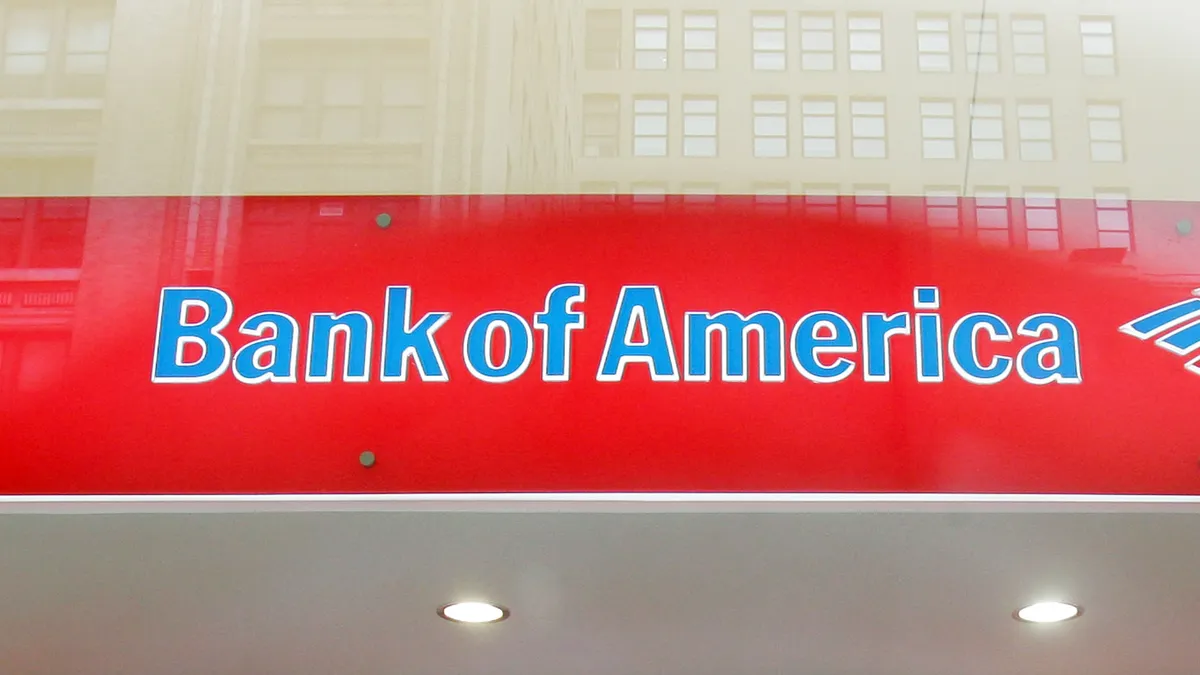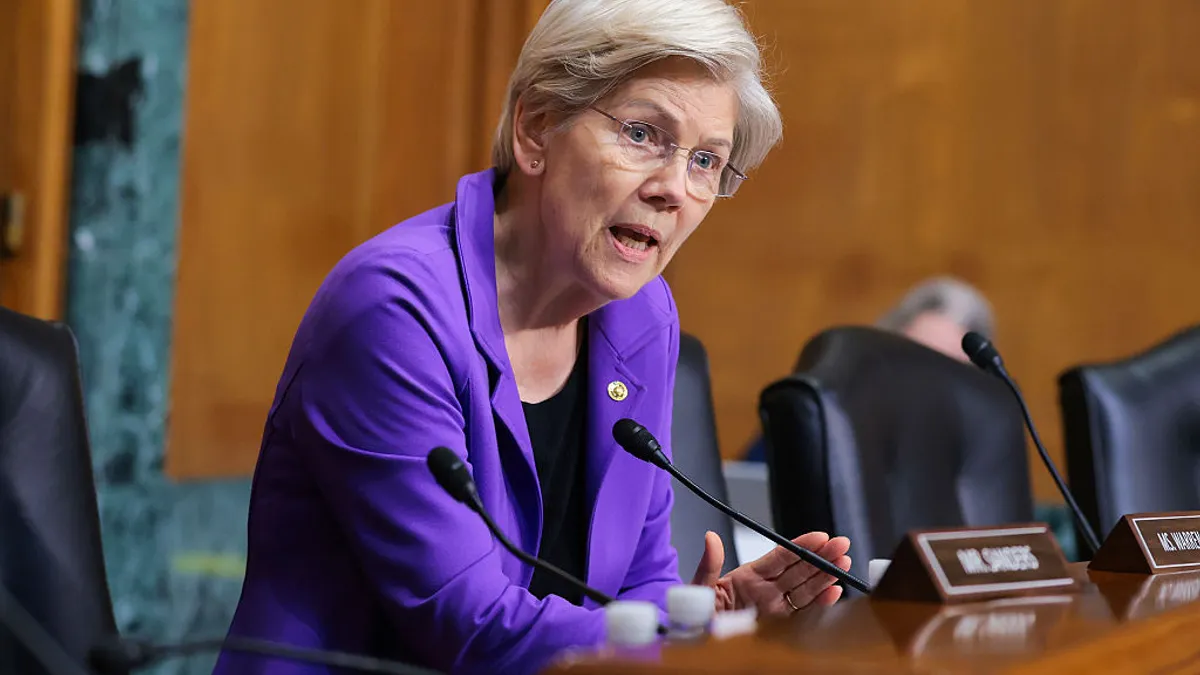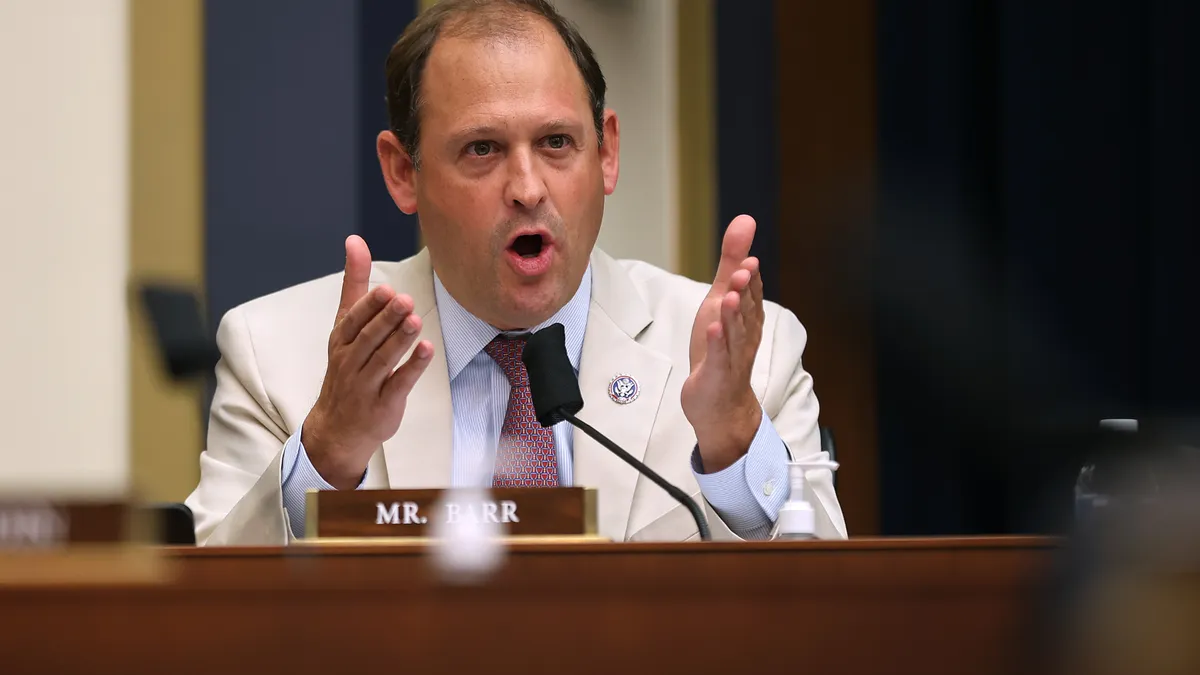Bank of America has tweaked the language of its environmental and social risk policy, appearing to backtrack in its restrictions on financing firearms manufacturers and some energy sectors.
At issue is a sentence that appeared in the June 2022 version of the bank’s environmental and social risk policy framework: “We have determined that we are currently unable to engage in the following activities based on the appropriate application of our Risk Framework and enhanced due diligence.”
That sentence ends a paragraph that separates two sets of “business restrictions” in Bank of America’s 2022 framework. The top set of restrictions — above that paragraph — covers activities such as bribery, child labor, human trafficking and illegal forest destruction. Below the “unable to engage” paragraph, the bank lists its restrictions on payday lending, firearms financing, private prison financing, and oil and coal-related energy processing.
But the “unable to engage” language doesn’t exist in Bank of America’s risk framework after a revision it made in December.
In its place, essentially, is a sentence that reads: “As such, any client relationship or transaction related to the below areas must go through an enhanced due diligence process and be escalated to the senior-most risk review body of the applicable line of business for decisioning.”
The move could be interpreted to shift firearms lending from a non-negotiable “no” to a “let’s-ask-legal.”
The bank declined to give details of what its risk review would include, according to The New York Times.
To further separate the likes of human trafficking (labeled as a “business restriction”) from firearms and fossil fuels, the bank inserted a new subhead in its latest framework: Business escalations.
The subtle changes to Bank of America’s risk framework “[send] a very bad signal,” Lucie Pinson, director of Reclaim Finance, told The New York Times. Reclaim Finance is a nonprofit that scrutinizes the climate strategies of fossil-fuel companies.
Dru Stevenson, a professor at the South Texas College of Law, told Bloomberg on Friday, however, that the changes could be “a workaround by the bank rather than a true change in their perspective.”
A 2019 version of Bank of America’s risk framework described financing certain gunmakers as “contrary to our values, operating principles and Code of Conduct.”
Bank of America agreed to stop financing the operations of certain firearms manufacturers in 2018 after a high school shooting in Parkland, Florida, left 17 students and staff dead.
“It’s our intention not to finance these military-style firearms for civilian use,” Anne Finucane, the bank’s then-vice chair, said at the time.
The bank then worked with “just a handful of manufacturers,” and had “intense conversations,” Finucane said, according to The New York Times. Their reactions to Bank of America’s policy change were “mixed,” she said.
Flash forward six years, though, and some states — including Parkland’s home — have fought back against banks that have chosen to wind down or cut back on some lending for reasons of conscience.
Florida in 2022 pulled roughly $2 billion in assets from BlackRock — far and away the largest target in some Republican-led states’ crusade against environmental, social and governance policies restricting lending.
Bank of America suspended its public finance work in Texas in 2021 after the state passed a law targeting banks that restricted lending to firearms firms.
The following year, the state placed BlackRock and nine other financial institutions — mostly European — on a list of companies that boycott the fossil fuel sector. The move requires state pension funds to divest from companies on the list, which has grown over the past two years but has not yet included an American company apart from BlackRock.
Bank of America, meanwhile, re-entered the Texas market for muni bonds and has quickly gained ground.
The bank has underwritten about $1.1 billion of Texas muni deals in 2024, compared with about $278 million over the same period a year ago, Bloomberg reported. That makes Bank of America the eighth-largest manager of deals in Texas. It was 18th at this point in 2023, according to the wire service.
Along with its re-entry, the bank has faced questioning. Bank of America was one of eight banks in November to receive a letter from Texas’s attorney general, asking about its affiliation with the climate-centered Net Zero Alliance.





















